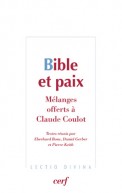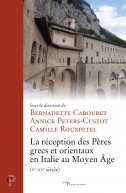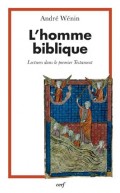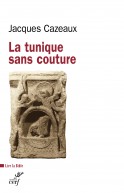Introduction à l'histoire de l'exégèse, IV
Collection Initiations aux Pères de l'Église
296 pages - avril 2009
29,70€
Avec ce quatrième tome, nous entrons dans l'Antiquité tardive et le haut Moyen Âge, celui de Grégoire le Grand, de Bède le Vénérable et de Bernard de Clairvaux — ces docteurs qui sont des saints et qui restent des modèles pour nous, comme ils le furent pour leurs contemporains. Dans le parcours historique allant de Léon le Grand à saint Bernard, il y a homogénéité de tradition et continuité, parce qu'il y a fidélité aux trois « sources chrétiennes » fondamentales que sont la Bible, la liturgie et la patristique ancienne. L'exégèse révèle le caractère intégral, intégrant de la culture médiévale, unissant la prière, la prédication, l'éthique, la recherche théologique en une expérience totale de la présence du Christ en chacun de ses membres et dans le Corps qu'ils constituent. La liturgie est ici comme une atmosphère englobante, en laquelle les détails sont perçus en relation avec l'ensemble de l'existence chrétienne. Toute l'exégèse pastorale de l'Occident latin tend à conduire les fidèles vers la vie éternelle, à les y préparer, à la leur faire désirer, sans peur constante, sans obsédante culpabilisation. De là ce ton de sécurité, de joie, ce bonheur d'une foi tranquille. De là leur insistance sur le « cœur » et leur intérêt pour le Cantique des cantiques. Leur exégèse est une activité d'amour, pour Dieu, pour tous. De là enfin l'agrément du style en lequel s'exprime cette exégèse expérientielle. [Dom Jean Leclercq]
--
With this fourth tome, we enter into late Antiquity and the Early Middle Ages, the times of Gregory the Great, the Venerable Bede and Bernard de Clairvaux; doctors and saints who remain models for us as they were for their contemporaries. In the historical path leading from Leo the Great to Saint Bernard, there is continuity and a homogenous tradition, because of their fidelity to the three fundamental ‘Christian sources’ which are the Bible, liturgy and ancient patristics. Exegesis reveals an integral character - absorbing medieval culture, unifying prayer, preaching, ethics and theological research - into one global experience of the presence of Christ in each of its members and in the Corps they constitute. Liturgy here is like an all-embracing atmosphere, within which details are perceived in their relation to the ensemble of Christian existence. All the pastoral exegesis of the Latin West tends to lead the faithful toward eternal life, to prepare them for it, make them desire it, without constantly living in fear; without obsessive feelings of guilt. Hence this tone of security, joy, the contentment of confident faith. Hence the insistence on the ‘heart’ and the interest for the Canticles. For them, exegesis is a labour of love, for God, for all. Hence, lastly, the charming style in which this experiential exegesis is written. [Dom Jean Leclercq]
--
With this fourth tome, we enter into late Antiquity and the Early Middle Ages, the times of Gregory the Great, the Venerable Bede and Bernard de Clairvaux; doctors and saints who remain models for us as they were for their contemporaries. In the historical path leading from Leo the Great to Saint Bernard, there is continuity and a homogenous tradition, because of their fidelity to the three fundamental ‘Christian sources’ which are the Bible, liturgy and ancient patristics. Exegesis reveals an integral character - absorbing medieval culture, unifying prayer, preaching, ethics and theological research - into one global experience of the presence of Christ in each of its members and in the Corps they constitute. Liturgy here is like an all-embracing atmosphere, within which details are perceived in their relation to the ensemble of Christian existence. All the pastoral exegesis of the Latin West tends to lead the faithful toward eternal life, to prepare them for it, make them desire it, without constantly living in fear; without obsessive feelings of guilt. Hence this tone of security, joy, the contentment of confident faith. Hence the insistence on the ‘heart’ and the interest for the Canticles. For them, exegesis is a labour of love, for God, for all. Hence, lastly, the charming style in which this experiential exegesis is written. [Dom Jean Leclercq]
- Dimensions : 135x215x18
- ISBN : 9782204089074
- Poids : 380 grammes
Avec la collaboration de : Adalbert de Vogüé, Dom Jean Leclercq
DU MÊME AUTEUR
Abbé Lacordaire (1828-1838)
240 pages - juin 1997
> VOIR TOUS LES LIVRES DE l'AUTEUR
DANS LA CATÉGORIE
Les ambassadeurs du Christ
Ministère pastoral et Nouveau Testament
de Philippe Rolland
154 pages - mai 1991
La réception des Pères grecs et orientaux en Italie au Moyen Âge (Ve-XVe siècle)
de Camille Rouxpetel
404 pages - août 2020










